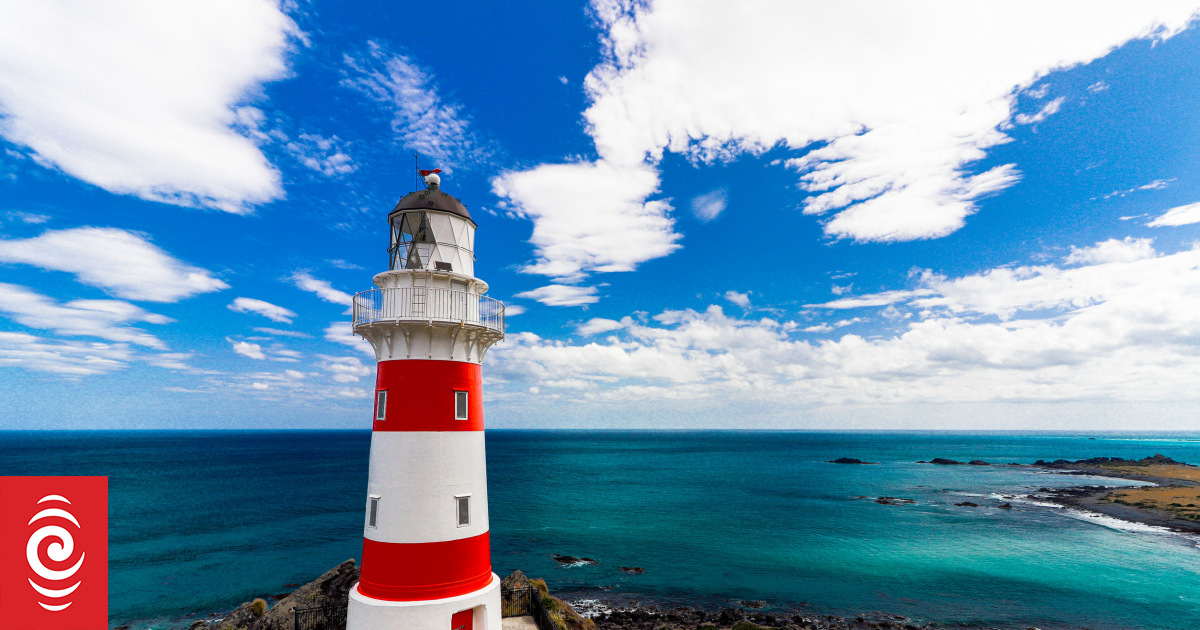The Cape Palliser coast has been a popular holiday destination to generations of Kiwis.
Photo: 123RF
South Wairarapa District Council has been told closing a popular paper road on the Wairarapa coastline is an overreach, but others say opposition is hypocritical.
Public hearings began Wednesday on the contentious bylaw, which proposed blocking access to remote parts of the Cape Palliser coast.
The council said the proposal had drawn an “unprecedented response”, with more than 3500 submissions – the most it’s ever received – with more than 80 percent opposed.
The road, which runs through privately owned Māori land and Crown land, provided access for outdoor enthusiasts, including hunters, fishers, surfers and campers.
Hapū Ngati Hinewaka previously told Checkpoint that landowners were angry and sad at the “shocking” range of damage done to the land.
It said the bylaw, which would restrict access for up to three years, didn’t go far enough and, for the land to heal, the road needed to be shut indefinitely.
Others disagreed and told councillors as much in the first of two days of scheduled public hearings.
Andrew MacDonald said, no matter what the outcome, the damage had been done and urged the councillors to stop the process, until after October’s local government election.
“Make no mistake, whatever decision you make today, the entire saga will be remembered as a betrayal of public trust and a stain on the legacy of the South Wairarapa District Council.”
Other submitters spoke of their love for the land and the camping they’d enjoyed at the site for generations.
Felicity Holmes said, not only were her grandparents’ ashes scattered there, she and her husband had requested the same in their wills.
Upper Hutt resident Scott Williams said he’d treasured camping in the area since childhood and had started taking his own family to the area.
He said the current proposal was not an acceptable solution and should only be considered as a last resort.
“Education and guidance for those who choose to enjoy the area is the only sustainable path forward,” he said. “Closing access, is in my view, is a narrow-minded and knee-jerk reaction.
“It may address some localised problems in the short term, but it does little, if anything, to support the broader goals of conservation, connection and stewardship across New Zealand.”
Matthew Bismark said the paper road provided access to a special part of Aotearoa and alternative routes were “completely impractical” for those who weren’t “seriously fit hunters and mountaineers”.
He also told councillors the bylaw was on shaky legal ground, but hapū Ngati Hinewaka member Reon Kerr said councillors had an obligation to the landowners under the Treaty of Waitangi and opposition to the bylaw was hypocritical.
“I listen to the submissions this morning and all I hear is entitled people to whenua that doesn’t even belong to them.
“That paper road doesn’t exist because we let it exist. It exists because of pākehā entitlement to start with.
“They put that there because they want access where they want to go, but we can’t take shortcuts through your fellas’ properties.”
Darcy Te Rito Tilyard had a similar message for councillors, explaining that the paper road was eroding and forcing the public onto private land.
“That road goes into the sea. Once the vehicles go to that sea part, they have to cross private land to get back on the road.
“As far as I’m concerned, that’s private property – no-one’s talking about it. They’re talking about how pretty it is out there, and how they’ve got obligations to go out there and camp.”
Haami Te Whaiti said, for the past 30 years, hapū had worked to regenerate the land, but those efforts were being undermined.
He said, without control, kaitiakitanga (guardianship) couldn’t happen, resulting in the current “mess”.
‘Contentious issue’
South Wairarapa District Council chief executive Janice Smith said the council was committed to running a “robust and transparent” consultation process to find the balance between local values and practical realities.
“We acknowledge that this is a contentious issue,” she said. “It’s an important conversation to have with our community in working to address the longstanding concerns from the landowners.”
She said councillors were across the issue and it made sense for them to see the process through until its conclusion, rather than postpone it until after October’s elections.
While the original draft bylaw focused solely on restricting vehicle access, hapū requested that access be restricted to all visitors to allow the land to heal.
Smith said the current bylaw would block access to the paper road for three years, “which Council believes is an appropriate option to fulfill this request”.
“This would allow an opportunity to review its progress, rather than pursuing a traditional road closure, which was not the intended outcome of these discussions.”
Smith said the bylaw allowed for Civil Defence Emergency Management to access the road and dismissed the prospect of legal options.
“Our focus is on engaging meaningfully with the community, without incurring additional costs, ensuring we understand what the community views as an appropriate alternative.”
The council expects to be presented with options for deliberation on 24 September.
Sign up for Ngā Pitopito Kōrero, a daily newsletter curated by our editors and delivered straight to your inbox every weekday.

